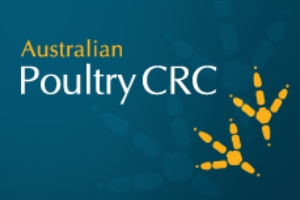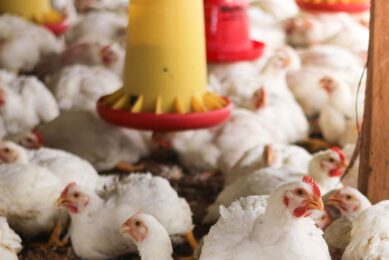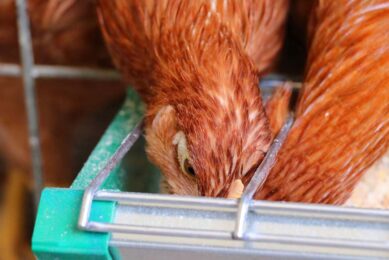Poultry CRC collaborates with Australian research students

Australia’s Poultry Cooperative Research Centre (CRC) is working with research students on several projects having to do with broiler health and welfare. One study focuses on how the composition of yolk affects broiler chick growth; the other examines male broiler sudden death syndrome.
How yolk composition may affect growth of broiler chicks
Sarah Weaver, a University of Adelaide PhD candidate, is investigating the role of yolk composition on the development of broiler embryos. With assistance from the Poultry CRC and under the supervision of Professor Phil Hynd, Weaver will compare yolks from broiler and layer birds to determine which compounds are different, and which may be responsible for changing the development of the birds.
Weaver explains, “Research by Oh et al (2011), transferring broiler and layer chicken embryos onto their reciprocal yolk environments (i.e. layer embryos onto broiler yolk and vice versa), surprisingly demonstrated that embryos took on characteristics of the yolk that they were transferred to, rather than their genetically-programmed phenotype. Obviously there is something contributing to the phenotypic expression in the yolk as they develop, so my research is focussed on identifying these pre-hatch factors.”
This finding has significant implications, especially for the broiler industry where, up until now, genetic selection has been predominately based around growth rates and feed conversion post-hatch. This approach has led to some problems in fast growing broilers, such as skeletal issues. If factors in yolk are responsible for the development of certain phenotypes, then knowledge of those factors may pave the way for specific (and targeted) manipulation of the diet of broiler breeder hens to alter yolk composition and improve broiler health outcomes.
To test the hypothesis that factors present in the yolk are associated with differences in the growth performance and health of broiler chickens, Weaver will begin by comparing crude nutrient factors such as energy, protein and dry matter to gauge primary differences between broiler and layer yolks. From there, the research will use an association approach to determine whether certain factors are associated with growth performance. If this is inconclusive, Weaver will utilise an intervention approach to see whether chicken growth can be altered by manipulation of yolk composition.
“The aim of this project is to develop tools that can result in a better developed bird that is set up for good health and longevity” she said.
Broiler sudden death syndrome topic of research
Apart from infections, sudden death syndrome, or ‘flip overs’, accounts for some broiler mortality during production, particularly for male broilers. It is thought to be a metabolic disorder associated with rapid growth rates, which leads to an imbalance in cardiac physiology and, consequently, heart failure. As male broilers generally grow faster than females, a metabolic disorder seems a likely cause for sudden death syndrome.
Poultry CRC Honours Student, Nicky-Lee Wilson, is looking to optimise the ratio of linoleic acid (Omega 6) to alpha-linolenic acid (Omega 3) in an attempt to promote cardiovascular health in broilers. Wilson’s project, under the supervision of Dr Rebecca Forder at the University of Adelaide, follows on from a larger scale validation trial conducted last year.
Specifically, Wilson will use some of the data and tissues from the previous trial to:
- determine whether an increase in alpha-linolenic acid, in the form of flaxseed oil, increases levels of long chain Omega 3 polyunsaturated fatty acids in the heart, and
- see whether this increase improves markers of cardiovascular health in broilers.
Wilson outlined the concept behind her project. “Omega 3s have received much attention, and have been shown to have cardio-protective effects in other species including humans, dogs and rodents. At the moment I am doing some general histology, looking for any signs of myofibre degeneration. We will then run some ELISAs for creatine kinase activity within the heart, to see if there are any changes between the diets. We will combine this with the fatty acid and morphometric data from the previous trial to determine whether there have been any improvements in cardiovascular health” she said.
Preliminary results indicate an increase in Omega 3 levels in the heart in response to the increase of flaxseed oil in the diet. “We will combine this result with general histology, looking for mild pathological changes (vacuolated sarcoplasm, interstitial oedema, changes in myocardial fibres etc). We have seen some mild indications of some of these changes in some of the sections we have stained, however, I am currently in the process of scoring these to determine whether this is associated with treatment or just a general population finding” said Wilson.
If the results from this experiment indicate Omega 3s have the potential to improve cardiovascular health in modern broilers, then there is good reason to include it in future feed formulations. In turn, this may help industry improve the overall health and welfare of broiler chickens and, potentially, reduce the incidence of sudden death syndrome.
Wilson has a degree in Animal Science from the University of Adelaide. “I originally enrolled with the intent to transfer into the Veterinary Science program, but found the further I got into my degree the more my interest in research grew” she explained.
Source: Poultry CRC
Join 31,000+ subscribers
Subscribe to our newsletter to stay updated about all the need-to-know content in the poultry sector, three times a week. Beheer
Beheer








 WP Admin
WP Admin  Bewerk bericht
Bewerk bericht